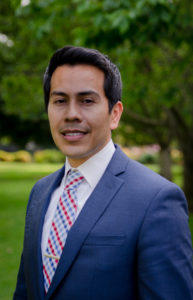Editor’s note: Citizens commission recommends millions more for community groups to respond to mentally ill
After all the debate and protests for police reform this year, it’s the most sweeping change in the works in Sacramento—a new office of social workers and mental health professionals who will respond to many 911 calls involving the mentally ill and homeless.
But a citizens advisory panel says the Office of Community Response will succeed only if the city commits millions of dollars more to grassroots groups—and if the Police Department ramps up training for officers.
Monday evening, the Sacramento Community Police Review Commission will vote on recommending that the City Council reallocate at least $5 million a year from the Police Department to community-based programs, such as Mental Health First, to help on 24/7 crisis response, plus at least $20 million a year for grants to community groups providing mental health intervention and treatment.
That money would be on top of $5 million set aside by the council to launch the Office of Community Response, which will take as long as two years to be fully operational.
“In the meantime, there are community driven solutions that were developed to address the current crisis and are available today,” says the report from the review commission’s mental health committee. “Given the need in our city, partnering with trusted community organizations is a key pillar to the success of the new office.”
Mental Health First, which marks its first year in Sacramento on Jan. 3, says its 7 staff members and dozens of volunteers have responded to several hundred calls and has not had to call police once.
City Council members approved the office on July 1 at the urging of Mayor Darrell Steinberg. Police Chief Daniel Hahn supports the idea. “As a police department and as police chief, we completely agree that our officers go on calls that we don’t believe that they should be going on,” Hahn told the council.
The city is studying how many 911 calls can be handled by the new office—and how much of the Police Department’s $157 million annual budget it should receive. In September 2020, the department says it responded to 2,676 calls involving homeless individuals and 405 involving mental illness. In 2019, the department reported a 13% increase in mental health related calls, to more than 12,000.
At the same time, the department is growing so that its ranks will be the largest since 2007. Steinberg says while he’s open to filling existing vacancies for officers, the priorities for new city funding should be affordable housing, small business assistance, workforce training and youth programs.
The review commission, which is trying to have a louder voice on police reform, will also consider a recommendation that mental health professionals be hired to screen 911 calls and dispatch the community response teams.
Also, the mental health committee’s report says even with shifting 911 calls to the new civilian office, it’s likely that police officers will still encounter situations involving mental health. So it urges the department to adopt the “last resort” standard for use of deadly force and to require officers to request the civilian teams immediately if they determine mental health is a factor.
The report also calls on the department to establish a board that would review all uses of force against a person with signs of symptoms of mental illness. The board would include mental health professionals, community members, the Office of Public Safety Accountability and the Police Review Commission.
On Sunday morning, officers confronted a man inside a Natomas supermarket who was acting erratically and holding a knife. He was wounding himself and then charged officers, the department said. “Multiple less lethal options were deployed, but despite being struck, he continued to advance towards officers with the knife in his hand,” according to the press release, and a Sacramento officer and California Highway Patrol officer shot the man. He died at the scene.
“Given the need in our city, partnering with trusted community organizations is a key pillar to the success of the new office.”

Finally, the mental health committee’s report says that while the Office of Community Response is “well intentioned, there are too many unanswered questions” and “it is imperative that accurate data is collected to ensure that crisis intervention resources are allocated efficiently and effectively.”
So Monday evening, the review commission will also consider sending a memo to City Manager Howard Chan seeking his help to get more detailed information from the Police Department.
It includes the number of 911 calls and other incidents related to mental health, and how of them many led to arrests, involuntary holds for psychiatric evaluation or use of force. The requested data also included a demographic breakdown of people involved in mental health-related calls to evaluate any “role that racial bias plays in the outcomes of these calls.”
“Even without department specific data, it is clear that law enforcement responses to mental health crises are inappropriate, and often escalate the situation and result in inappropriate uses of force,” the report says. It says that people with mental health issues are 16 times more likely to be killed by law enforcement.
Sacramento County is studying a similar civilian unit to respond to emergency calls involving mental illness and homelessness instead of sheriff’s deputies. If supervisors approve, there could be a pilot program starting in February.
Of about 451,000 total 911 calls last year to the Sheriff’s Office, 18,759 were homeless-related and led to 1,285 arrests, while 2,798 were mental health-related and led to 17 arrests, according to a report to county supervisors.
Of 166,090 calls through May this year, 8,230 involved homeless people, leading to 736 arrests, and 524 involved people with mental illness, resulting in five arrests.






City and County budgets should shift funding so as to prioritize citizen safety. And from a larger perspective, since needs always exceed revenues, budgets should be based on percentages for the key sectors of city administration and services, not just absolute amounts.